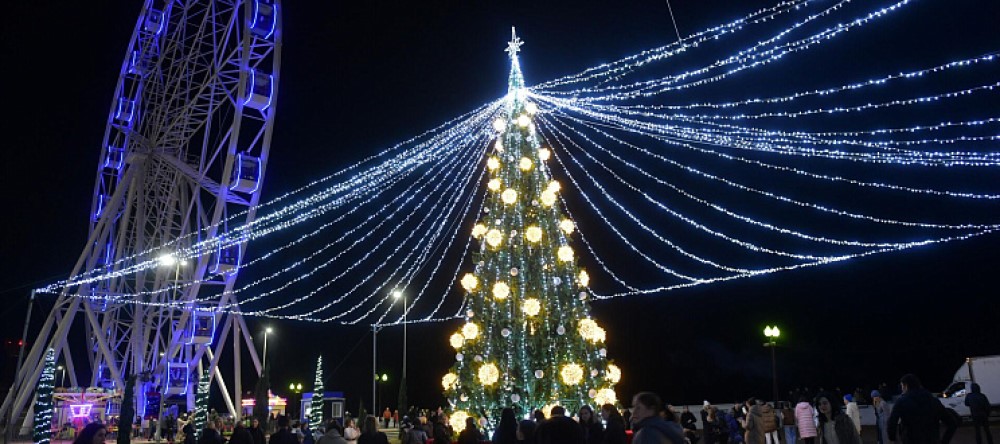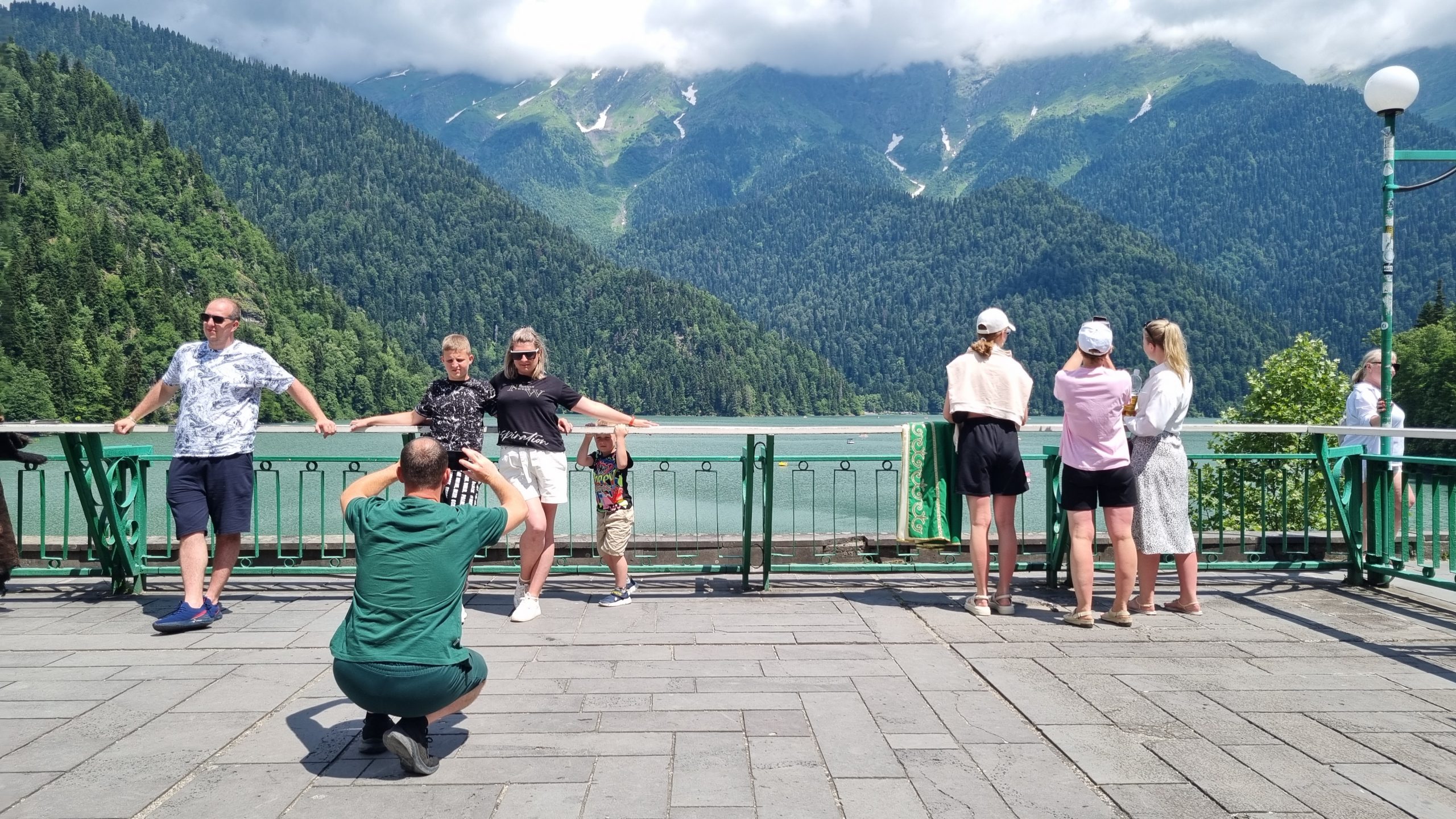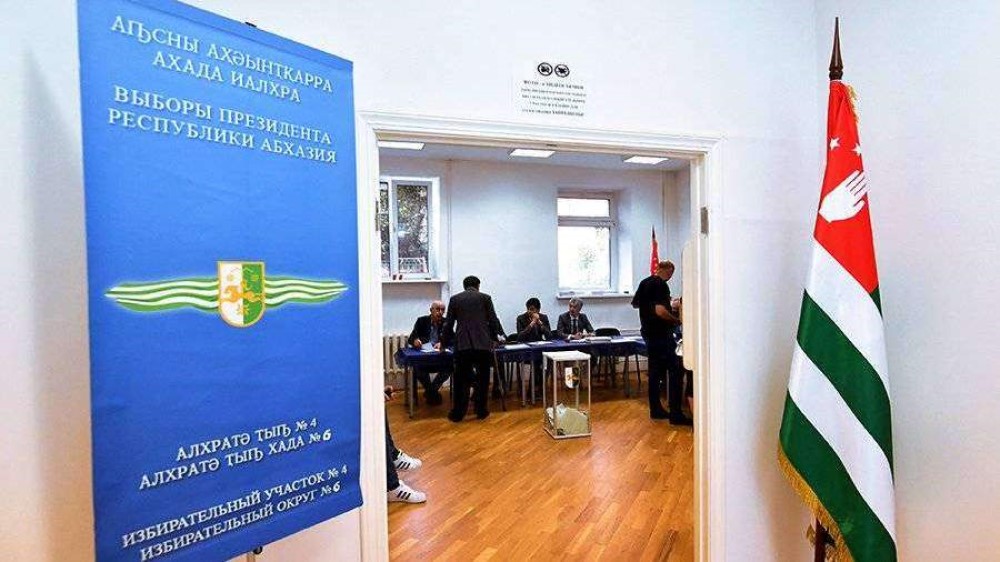
What happened in Abkhazia 2024
Although Abkhazia’s 2024 tourist season broke all previous records, it’s unlikely the republic’s residents would call this year a success. For many, it will long be remembered for the deep crisis that ultimately led to yet another (the third consecutive) early resignation of the president.
Silver lining amid crisis
Let’s start with the positives.
Extensive Western sanctions against Russia deprived most Russians of the opportunity to vacation in Europe, restoring Abkhazia’s appeal as a travel destination. For many, it became the most convenient option.
First, it’s close. Second, it’s affordable. Plus, payments can be made in rubles, and everyone speaks Russian. Of course, the service leaves much to be desired, and it can’t compare to Turkey or Egypt—but then again, the prices are much lower.
According to official statistics, from January to September 2024, Abkhazia welcomed 4.6 million Russian tourists. Economically, this made the year quite successful for many Abkhazians working in the tourism industry.
However, despite the tourism boom, Abkhazia remains dependent on subsidies, with nearly 40% of its budget funded by financial aid from Russia.
In return for its generosity, Moscow expects reciprocal gestures from Abkhazia, including extensive privileges for Russian investors. This expectation became the root cause of the political crisis.
No to Apartments
The first stumbling block in Russian-Abkhaz relations was a draft law that would allow Russians to build and purchase apartments in Abkhazia. Despite former President Aslan Bzhania’s assurances that this would boost the local economy and increase budget revenues, most of the population fiercely opposed the idea.
The main reason for the rejection lies in the fact that, for a tiny republic with a population of just 240,000, such an influx of foreigners poses a genuine threat of turning ethnic Abkhazians into a minority.
Moreover, lifting the existing ban on selling real estate to foreigners would inevitably drive up housing prices, making it unaffordable for most locals.
In short, Abkhazians had plenty of reasons to resist the adoption of the apartment law—and they succeeded. Even the usually loyal parliament, mindful of public sentiment, refused to consider the bill.
Disagreement with agreement
But Aslan Bzhania didn’t give up and embedded the idea of apartments into an even more contentious agreement on Russian investments.
The agreement proposed unprecedented benefits for investors, including the right to use Abkhaz land as collateral for bank loans. If enacted, it would mark the beginning of the end for local businesses, which cannot compete with Russian companies under such conditions.
An attempt to ratify the controversial agreement in parliament on November 15 sparked mass protests that escalated into a mini-coup. Protesters seized the government complex, ultimately forcing President Aslan Bzhania to resign.
Dark December and glimmer of hope
Another crisis of 2024, one that will likely remain etched in Abkhazian memory for years, was the energy collapse that struck the republic at the year’s end.
The seasonal electricity shortage caused by low water levels at the Inguri HPP dam was worsened this year when a disgruntled Russia decided to sell electricity to Abkhazia at market rates. For Abkhazia, the cost was prohibitive, leaving the government with just enough funds to supply power only during nighttime hours, while the republic remained without electricity during the day.
This continued throughout December, pushing the situation to the brink of catastrophe as the budget was completely depleted. However, by the end of the year, Moscow softened its stance and resumed supplying Abkhazia with a “preferential electricity package,” restoring the previous arrangement.
- Energy crisis in Abkhazia: Daytime power cuts loom
- “If cryptocurrency mining isn’t stopped, Abkhazia will sink into darkness.” Opinion
However, the Kremlin has made it clear that Russia’s favorable treatment of Abkhazia directly depends on its fulfillment of obligations, including the ratification of the contentious investment agreement.
In other words, the crisis is far from over. Finding a way out will fall to Abkhazia’s next president, who will be elected on February 15, 2025.
Terms, place names, opinions and ideas suggested by the author of the publication are their own and do not necessarily coincide with the opinions and ideas of JAMnews or its individual employees. JAMnews reserves the right to remove comments on posts that are deemed offensive, threatening, violent or otherwise ethically unacceptable





